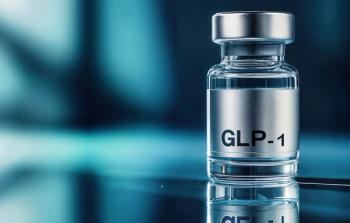
The Foundations of Pharmaceutical Industry Compliance
A focus on medical affairs and medical science liaisons.
Whether you are a pharmaceutical industry veteran or new to the industry, at some point, compliance will be an important part of your career. The pharmaceutical industry has become increasingly regulated and in the last few years there has been a greater focus on medical affairs. Over the last decade, medical affairs has grown by over 300% making it one of the fastest growing functions in the industry. This is not only limited to traditional “pharma” but also to the medical devices, biotechnology, and diagnostic industries which have started to follow a similar blueprint from pharma in building out their own respective medical affairs and medical science liaison (MSL) teams.
There are several factors that have led to the need for a greater focus on medical affairs compliance. In particular, one of these being the rapid globalization of medical affairs in the last decade. Several companies have expanded their medical affairs team footprint beyond the Untied States and the need to ensure greater consistency and uniformity in the processes, training, and quality of their medical affairs organization cannot be understated. Additionally, the reliance on medical affairs and MSL teams to be the primary educators or communicators at a peer-to-peer level with healthcare providers (HCPs) has taken center stage.
Another important consideration is the culture that permeates the medical affairs organization as well.Medical affairs operations or medical affairs excellence executives need to focus on consistently enabling high quality processes and team members to execute on the company’s strategic imperatives in an efficient and effective manner. There is often a dichotomous split between field medical affairs (MSL organizations) and ‘internal’ or ‘in-house’ medical affairs. These need to be seen as one continuous unit- where the field medical affairs team (MSL team) is simply an extension of ‘in-house’ medical. The importance of a culture of ‘oneness’ in the medical affairs team is critical to ensuring long-term success and effective cross functional collaboration.
Historically, pharmaceutical industry compliance training for medical were adapted using the sales and marketing PhRMA code type training curricula. Many of which are not applicable to medical.Additionally, most often, pharmaceutical companies are not ensuring that there is consistency and an independent assessment of their organization by benchmarking against industry standards. Most rely on their own internal training organizations. While this is a sound strategy for disease state and product training, when it comes to the core functional skillset and competencies needed to compliantly and effectively work as either an MSL or medical affairs professional, companies need to implement initiatives that ‘level set’ the organization. The need to understand the gaps and strengths of its team are critical and these need to be assessed routinely and independently to ensure objectivity.
In a study conducted by the Accreditation Council for Medical Affairs (ACMA) which surveyed compliance officers at top 25 pharmaceutical companies, 65% of pharmaceutical industry compliance officers agreed that possessing a medical affairs certification would improve a medical affairs organization’s level of compliance, as shown in Figure 1 below.
Additionally, 80% agreed that individuals possessing a medical affairs board certification would minimize risk to the company, as shown in Figure 2 below.
So, how do other industries do this? Typically, there is the incorporation of an accreditation or certification process to ensure both quality and compliance measures within the organization meet industry benchmarks and comply with federal and state regulations. In a fast-changing environment, no one can be expected to know everything- neither the industry novice or the pharma industry veteran.Seeking independent accreditation and certification can help to validate a team’s performance, minimize compliance risks and demonstrate to regulators that your organization has gone ‘above and beyond’ in ensuring that your medical affairs and MSL team members are operating at the highest quality standards.
Whether it is through formalized certification and accreditation of medical affairs or through some other means, investing in compliance and quality has traditionally demonstrated a strong return on investment for organization and, as shown, the data supports the idea that compliance officers at major pharmaceutical companies are supportive of the idea of certifying medical affairs and MSL teams will minimize a company’s risk and improve compliance and effectiveness.
William Soliman, PhD, Chairman, CEO, Accreditation Council for Medical Affairs
Newsletter
Lead with insight with the Pharmaceutical Executive newsletter, featuring strategic analysis, leadership trends, and market intelligence for biopharma decision-makers.




